Reflections on the scholarship: Global Citizenship and Ethical Leadership
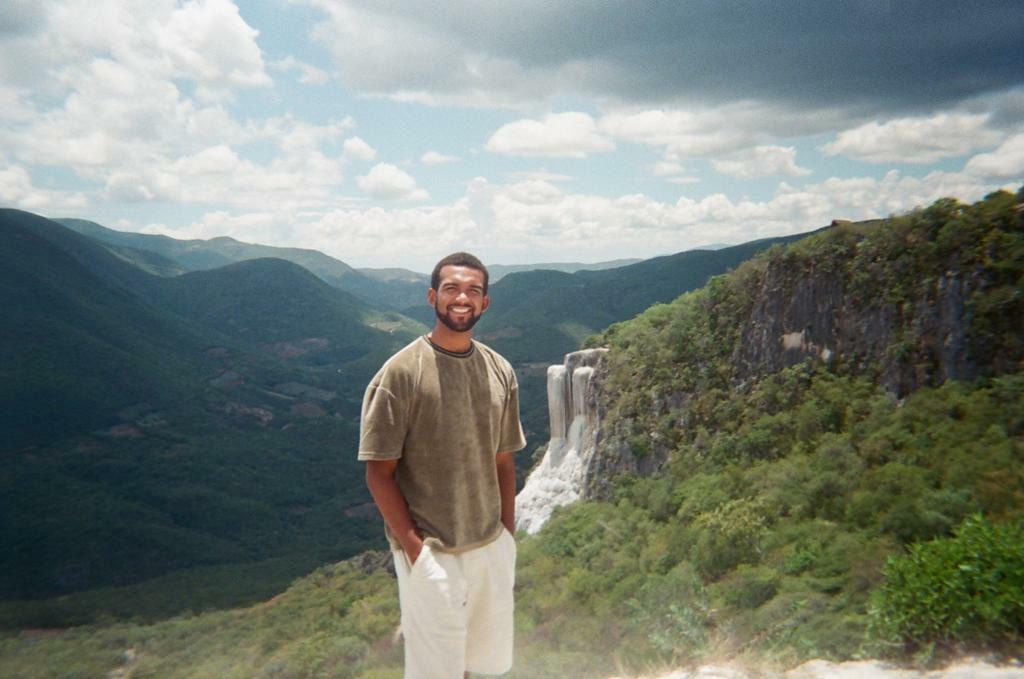
If you had told me when I was applying for the Laidlaw Research and Leadership Scholarship that I would have accomplished everything I have in the last two years, I don’t think I would have been able to comprehend it, let alone believe it. Of course, that isn’t solely due to the scholarship. However, this scholarship has facilitated, created and/or supported the opportunities that have underpinned this journey, and has provided invaluable lessons along the way. During this piece, I seek to share my progress, delve into my learnings and explore how being an ethical leader and global citizen have been crucial to my experience.
Before this scholarship, I had evidence that I had the qualities required to be a leader in the form of my feature in Powerful Media’s 2021/22 Future Leaders publication, but despite this I still faced many doubts and lacked the self-belief to make it a reality. So, it was vital for me to find a connection from the external validation to the internal self-belief, confidence and worth; upon reflection, the scholarship undeniably provided a firm starting point. When the introductory email for applications to the Laidlaw Scholarship arrived in my inbox, I assumed it was only applicable to Law students and almost deleted it. For some reason, however, I decided to read it and am so glad I did: It seemed like a great opportunity and the application process itself was enjoyable. From the very beginning, the Laidlaw Scholarship forces you to think about how your actions now have the potential to influence both your future and the future of those around you – ‘What sort of leader would I like to be in 5 years’ time?’
Summer 1
In preparation for our first summer and also the introductory component of our scholarship, was our residential trip to Peat Rigg. Immediately, we were exposed to some key principles of being an ethical leader: through various team activities that challenged everybody in different ways, we were empowered to demonstrate our capacity for empathy, convey purpose and build teams - showing us all straight away, that we already possess core leadership abilities. One of the camp leaders on this residential taught me something that I’ve carried with me since; he spoke about the learning zone model which illustrates that we have three different zone of learning: (1) our comfort zone, which provides a safe place to reflect, but also prevents learning anything new. (2) Our learning zone, which is just outside of out comfort zone, but where we are still in a supportive environment and have all the tools needed to grow and learn. And then finally, there is (3) the panic/ danger zone – in this zone, we don’t have the correct combination of skillset, knowledge or support to learn, causing us to feel overwhelmed and panicked. While the benefits of the learning zone are immediately obvious, being aware of our comfort zone and using that time to reflect effectively, as well as using our panic zone to establish our boundaries are all an important part of growth and learning. Now, when I am in new scenarios, or I see somebody struggling in an unfamiliar environment, I always refer to this model to assess the situation and find the best solution. I am very grateful to that leader, Jake, for sharing this insight.
My research project in the first summer presented an opportunity to combine my degree with all of my recent leadership lessons, whilst learning many new things in parallel. I investigated a mystery signal in the lightcurves of an intermediate polar in the Cassiopeia galaxy, V709 Cas. Nothing like this signal had ever been detected in a star before, but the NASA-led TESS mission provided such detailed data resolution (a reading once every 2 minutes for 27 days, or 19,440 readings) that we were able to investigate with an unprecedented precision. Naturally, this required me to think critically and creatively: I had to be very innovative in my approach, because there was little-to-no previous literature investigating something similar. Moreover, I had to analyse an immense amount of data in a given timeframe, and this required an efficient ability to prioritise tasks and manage my time responsibly. Although I had an exceptional supervisor in Dr. Simone Scaringi, who provided several starting points to inspire some of my thinking, this project required me to remain very disciplined and work independently. All of these attributes are essential to an ethical leader.
Like any large-scale project, regardless of the level of detail you put into planning, it never goes exactly as expected. What is crucial is that despite every setback, you remain resilient and persevere, continuing to make progress and have an impact. Throughout my research project, I frequently had to reassess the scope of my project: should I investigate just one star? Or all stars of a specific type? Which would be most beneficial, and create the biggest impact? Despite this challenge, and many others faced along the way, a willingness to learn as well as the recognition that mistakes and setbacks are a part of process helped me to remain focussed and complete the research. Furthermore, knowing that the most useful information is obtained through the questions you ask, and therefore, having the courage to continually ask questions no matter how big or small helped me to navigate complex situations.
Between Summers 1 and 2
In-between my first and second summer, I embarked on a year abroad to Heidelberg, Germany, in order to continue to study Physics whilst learning a new language. This also allowed me to embrace an unfamiliar environment and build new relationships with people from diverse cultures and backgrounds. The year abroad exposed me to so many new opportunities and experiences, and having completed it, I will only recommend it to everybody I meet. For me specifically, I began taking salsa lessons to help with my confidence, and also completed a theatre course alongside my degree to help me improve my public speaking and communication. Theatre especially helped me to become simultaneously a more effective and understanding listener, as well as a more confident speaker. My public speaking also improved because in Heidelberg, many problem-classes require you to present your answers live at the front of the class. Having spent the first two years of my degree either online, or in a hybrid environment, I had little exposure to this style of teaching, and am really grateful I had the opportunity to do this.
In particular, there were a couple of realisations that have stayed with me and that I have continued to use since. Firstly, it is unbelievable how much stress and pressure can impact your performance: I watched two of my fellow students present one of their German exams and even though I had seen them effortlessly communicate with a better level of German than the test required, the situation they were in caused them to panic and make several mistakes. Therefore, it was an important lesson to me that if you are able to control your mindset, you are able to control your performance. Furthermore, following the performances and presentations I had to give across the year, I realised that nothing is ever as scary – or even important – as it is in your head beforehand. And often, I would complete a presentation and not feel any sense of achievement afterwards, because I think sub-consciously, I knew I was more than capable of doing it. If there was no sense of pride afterwards, then I didn’t (don’t) need to expend so much energy and anxiety ahead of it. This is a lesson that I am still trying to apply but will make sure I give myself the space to practise in my next year at University.
Being alone in a new country can be an isolating and scary experience, and there were definitely times at the beginning when I felt incredibly low. There were a particularly tough few weeks at the start of October in which I felt the lowest I had since being at University; but through my daily practises, such as meditation, exercising and journaling, I came through on the other side much healthier than I had felt before. This experience encapsulated another strength for me: now I have shown myself that I can find the path leading from a setback to a place where I am more capable than before, I know that I if I find myself in a similar situation, I already possess the skills to succeed from there and that knowledge in itself diminishes the setback. I believe these realisations and daily habits such as journaling demonstrate my self-awareness and will to continually learn – including about myself.
Summer 2
My second summer was completely different to anything I have experienced before. My leadership-in-action ultimately led me to volunteering for several weeks in a rainforest in the Osa Peninsula, Costa Rica, for COPROT - a community-driven conservation project that aims to conserve sea turtle nesting habitats on the beach whilst simultaneously supporting the local community. In the post prior to this one, I discuss the experience in much greater detail, but it was wonderful to build relationships and work collaboratively with people from all over the world. Sometimes having to use actions and emotion to communicate instead of words across a language barrier!
I also want to mention another opportunity that I also received because of the LiA: when deciding which project I should do, I sent a random email to Mission 44, a charity founded by my hero (for numerous reasons) Lewis Hamilton to see if they could facilitate me volunteering for them this summer. Unfortunately, they told me that they only work with people via official roles and therefore, that I should keep my eye out for any opportunities. Months later, I saw on LinkedIn that they were looking to set up a youth advisory board and thought ‘Why not?’ Amazingly, my application was successful, and I am now a part of a team of 14 incredible people, all with diverse experiences and expertise, working for a charity that seeks to transform the lives of young people from underserved backgrounds. As part of this work so far, I had the honour of meeting, and even interviewing Lewis Hamilton himself, and am extremely grateful for the trajectory my life is currently on. This would not have happened if not for the leadership-in-action project, and by extension, this scholarship.
Next Destination?
Honestly, I don’t know! But there’s an excitement in that, and a trust in myself that the path I’m traversing is the one I’m supposed to be on. There are personal objectives I want to achieve in the coming years that will help me become a more ethical leader and a more conscious, global citizen. And once I have accomplished those, there will be more objectives to complete that will help me in this same goal: becoming both an ethical leader and a global citizen is an unending journey, made longer – with more challenges to face - as this world becomes more complicated to live in every day. However, I am grateful that the lessons I have learned and the insight I have gained through the aforementioned experiences and the Laidlaw Research and Leadership Scholarship have provided the ultimate starting point on this journey, and I look forward to everything that is still to come. So, thank you, Laidlaw Foundation, for providing such a life-changing scholarship programme. And thank you Kelci Jacoby (Assistant Manager, Leadership Framework and Laidlaw Leadership and Research Programme at Durham University) for being a constant source of support throughout the past one and a half years.
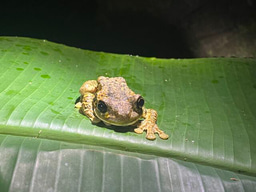
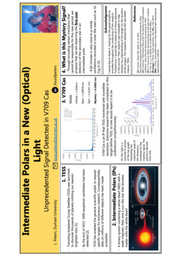
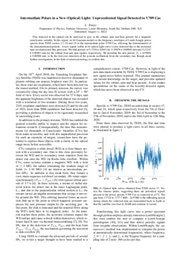
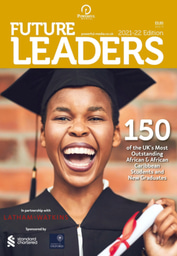
Please sign in
If you are a registered user on Laidlaw Scholars Network, please sign in